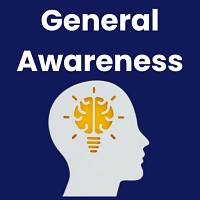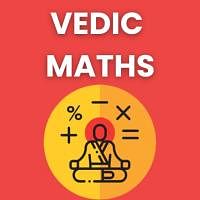Banking Exams Exam > Banking Exams Questions > Direction: Read the information carefully an...
Start Learning for Free
Direction: Read the information carefully and answer the questions given below
A, B, C, D, E, F, G, H, I and J are family members. There are three generations in the family. Each member goes for a marriage ceremony in different cities viz. Agra, Haridwar, Delhi, Mumbai, Baroda, Patna, Varanasi, Kolkata, Pune and Hyderabad but not necessarily in the same order. They attend the ceremony in different months namely January, February, March, April and May either on 7th or on 14th of each month. One person attends the ceremony on one given date but not necessarily in the same order.
There is an equal number of male and female in the family. In the family, each female member except B and H has two sisters and one unmarried brother. B has no sister-in-law. I is the father-in-law of F and goes Baroda for wedding in the month having 30 days. No male member goes Hyderabad, Haridwar and Varanasi for the wedding.
Three persons attend wedding between I and G. G who goes Patna is the son-in-law of B. Mother of C goes Haridwar for wedding just before G. D goes Agra, is the unmarried sister of E, who attend wedding in the month having least number of days. E does not go Kolkata for wedding. C is the sister-in-law of F, attends the wedding after her father in an odd number date but does not go Hyderabad.
E is brother-in-law of G. Father of B is the husband of H and he attends wedding just before H but does not go to Pune. C is a married sister of A, who attends the wedding on odd number date. D attends the wedding before A’s husband. Grandparents do not any other city except Pune and Delhi for the wedding.
All are same in a certain way and thus form a group. Which of the following does not belong to the group?
- a)B
- b)E
- c)H
- d)D
- e)G
Correct answer is option 'E'. Can you explain this answer?
| FREE This question is part of | Download PDF Attempt this Test |
Most Upvoted Answer
Direction: Read the information carefully and answer the questions gi...
1) There is an equal number of male and female in the family. ( 5 male, 5 female)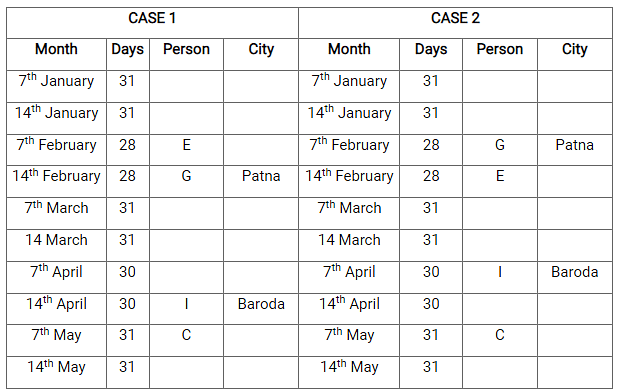
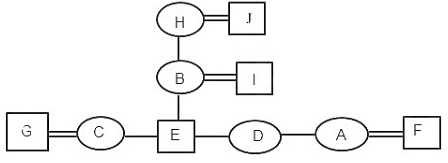
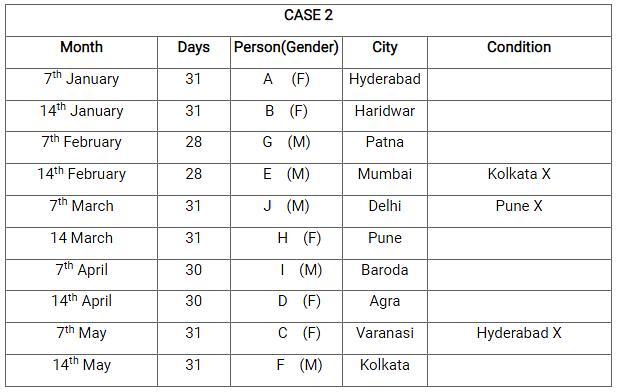
2) In the family, each female member except B and H has two sisters and one unmarried brother. B has no sister-in-law.
3) D goes Agra, is the unmarried sister of E, who attend wedding in the month having least number of days.
4) C is the married sister of A, who attends the wedding on odd number date.
5) E is brother-in-law of G.
6) C is the sister-in-law of F, attends the wedding after her father in an odd number date but does not go Hyderabad. (As E and D are unmarried so F is the husband of A.)
7) G who goes Patna is the son-in-law of B.
8) Father of B is the husband of H.
9) I is the father-in-law of F and goes Baroda for wedding in the month having 30 days.
10) Three persons attend the wedding between I and G.


11) Mother of C goes Haridwar for the wedding just before G.(This eliminates case 1)
12) Father of B is the husband of H and he attends wedding just before H but does not go to Pune.
13) Grandparents do not any other city except Pune and Delhi for the wedding.
14) A, who attends wedding on odd number date.
15) E does not go Kolkata for wedding.
16) D attends the wedding before A’s husband.
17) No male member goes Hyderabad, Haridwar and Varanasi for the wedding.

All attend the wedding on an even number date except G.
So, G does not belong to that group.
Attention Banking Exams Students!
To make sure you are not studying endlessly, EduRev has designed Banking Exams study material, with Structured Courses, Videos, & Test Series. Plus get personalized analysis, doubt solving and improvement plans to achieve a great score in Banking Exams.

|
Explore Courses for Banking Exams exam
|

|
Similar Banking Exams Doubts
Direction: Read the information carefully and answer the questions given belowA, B, C, D, E, F, G, H, I and J are family members. There are three generations in the family. Each member goes for a marriage ceremony in different cities viz. Agra, Haridwar, Delhi, Mumbai, Baroda, Patna, Varanasi, Kolkata, Pune and Hyderabad but not necessarily in the same order. They attend the ceremony in different months namely January, February, March, April and May either on 7th or on 14th of each month. One person attends the ceremony on one given date but not necessarily in the same order.There is an equal number of male and female in the family. In the family, each female member except B and H has two sisters and one unmarried brother. B has no sister-in-law. I is the father-in-law of F and goes Baroda for wedding in the month having 30 days. No male member goes Hyderabad, Haridwar and Varanasi for the wedding.Three persons attend wedding between I and G. G who goes Patna is the son-in-law of B. Mother of C goes Haridwar for wedding just before G. D goes Agra, is the unmarried sister of E, who attend wedding in the month having least number of days. E does not go Kolkata for wedding. C is the sister-in-law of F, attends the wedding after her father in an odd number date but does not go Hyderabad.E is brother-in-law of G. Father of B is the husband of H and he attends wedding just before H but does not go to Pune. C is a married sister of A, who attends the wedding on odd number date. D attends the wedding before A’s husband. Grandparents do not any other city except Pune and Delhi for the wedding.All are same in a certain way and thus form a group. Which of the following does not belong to the group?a)Bb)Ec)Hd)De)GCorrect answer is option 'E'. Can you explain this answer?
Question Description
Direction: Read the information carefully and answer the questions given belowA, B, C, D, E, F, G, H, I and J are family members. There are three generations in the family. Each member goes for a marriage ceremony in different cities viz. Agra, Haridwar, Delhi, Mumbai, Baroda, Patna, Varanasi, Kolkata, Pune and Hyderabad but not necessarily in the same order. They attend the ceremony in different months namely January, February, March, April and May either on 7th or on 14th of each month. One person attends the ceremony on one given date but not necessarily in the same order.There is an equal number of male and female in the family. In the family, each female member except B and H has two sisters and one unmarried brother. B has no sister-in-law. I is the father-in-law of F and goes Baroda for wedding in the month having 30 days. No male member goes Hyderabad, Haridwar and Varanasi for the wedding.Three persons attend wedding between I and G. G who goes Patna is the son-in-law of B. Mother of C goes Haridwar for wedding just before G. D goes Agra, is the unmarried sister of E, who attend wedding in the month having least number of days. E does not go Kolkata for wedding. C is the sister-in-law of F, attends the wedding after her father in an odd number date but does not go Hyderabad.E is brother-in-law of G. Father of B is the husband of H and he attends wedding just before H but does not go to Pune. C is a married sister of A, who attends the wedding on odd number date. D attends the wedding before A’s husband. Grandparents do not any other city except Pune and Delhi for the wedding.All are same in a certain way and thus form a group. Which of the following does not belong to the group?a)Bb)Ec)Hd)De)GCorrect answer is option 'E'. Can you explain this answer? for Banking Exams 2024 is part of Banking Exams preparation. The Question and answers have been prepared according to the Banking Exams exam syllabus. Information about Direction: Read the information carefully and answer the questions given belowA, B, C, D, E, F, G, H, I and J are family members. There are three generations in the family. Each member goes for a marriage ceremony in different cities viz. Agra, Haridwar, Delhi, Mumbai, Baroda, Patna, Varanasi, Kolkata, Pune and Hyderabad but not necessarily in the same order. They attend the ceremony in different months namely January, February, March, April and May either on 7th or on 14th of each month. One person attends the ceremony on one given date but not necessarily in the same order.There is an equal number of male and female in the family. In the family, each female member except B and H has two sisters and one unmarried brother. B has no sister-in-law. I is the father-in-law of F and goes Baroda for wedding in the month having 30 days. No male member goes Hyderabad, Haridwar and Varanasi for the wedding.Three persons attend wedding between I and G. G who goes Patna is the son-in-law of B. Mother of C goes Haridwar for wedding just before G. D goes Agra, is the unmarried sister of E, who attend wedding in the month having least number of days. E does not go Kolkata for wedding. C is the sister-in-law of F, attends the wedding after her father in an odd number date but does not go Hyderabad.E is brother-in-law of G. Father of B is the husband of H and he attends wedding just before H but does not go to Pune. C is a married sister of A, who attends the wedding on odd number date. D attends the wedding before A’s husband. Grandparents do not any other city except Pune and Delhi for the wedding.All are same in a certain way and thus form a group. Which of the following does not belong to the group?a)Bb)Ec)Hd)De)GCorrect answer is option 'E'. Can you explain this answer? covers all topics & solutions for Banking Exams 2024 Exam. Find important definitions, questions, meanings, examples, exercises and tests below for Direction: Read the information carefully and answer the questions given belowA, B, C, D, E, F, G, H, I and J are family members. There are three generations in the family. Each member goes for a marriage ceremony in different cities viz. Agra, Haridwar, Delhi, Mumbai, Baroda, Patna, Varanasi, Kolkata, Pune and Hyderabad but not necessarily in the same order. They attend the ceremony in different months namely January, February, March, April and May either on 7th or on 14th of each month. One person attends the ceremony on one given date but not necessarily in the same order.There is an equal number of male and female in the family. In the family, each female member except B and H has two sisters and one unmarried brother. B has no sister-in-law. I is the father-in-law of F and goes Baroda for wedding in the month having 30 days. No male member goes Hyderabad, Haridwar and Varanasi for the wedding.Three persons attend wedding between I and G. G who goes Patna is the son-in-law of B. Mother of C goes Haridwar for wedding just before G. D goes Agra, is the unmarried sister of E, who attend wedding in the month having least number of days. E does not go Kolkata for wedding. C is the sister-in-law of F, attends the wedding after her father in an odd number date but does not go Hyderabad.E is brother-in-law of G. Father of B is the husband of H and he attends wedding just before H but does not go to Pune. C is a married sister of A, who attends the wedding on odd number date. D attends the wedding before A’s husband. Grandparents do not any other city except Pune and Delhi for the wedding.All are same in a certain way and thus form a group. Which of the following does not belong to the group?a)Bb)Ec)Hd)De)GCorrect answer is option 'E'. Can you explain this answer?.
Direction: Read the information carefully and answer the questions given belowA, B, C, D, E, F, G, H, I and J are family members. There are three generations in the family. Each member goes for a marriage ceremony in different cities viz. Agra, Haridwar, Delhi, Mumbai, Baroda, Patna, Varanasi, Kolkata, Pune and Hyderabad but not necessarily in the same order. They attend the ceremony in different months namely January, February, March, April and May either on 7th or on 14th of each month. One person attends the ceremony on one given date but not necessarily in the same order.There is an equal number of male and female in the family. In the family, each female member except B and H has two sisters and one unmarried brother. B has no sister-in-law. I is the father-in-law of F and goes Baroda for wedding in the month having 30 days. No male member goes Hyderabad, Haridwar and Varanasi for the wedding.Three persons attend wedding between I and G. G who goes Patna is the son-in-law of B. Mother of C goes Haridwar for wedding just before G. D goes Agra, is the unmarried sister of E, who attend wedding in the month having least number of days. E does not go Kolkata for wedding. C is the sister-in-law of F, attends the wedding after her father in an odd number date but does not go Hyderabad.E is brother-in-law of G. Father of B is the husband of H and he attends wedding just before H but does not go to Pune. C is a married sister of A, who attends the wedding on odd number date. D attends the wedding before A’s husband. Grandparents do not any other city except Pune and Delhi for the wedding.All are same in a certain way and thus form a group. Which of the following does not belong to the group?a)Bb)Ec)Hd)De)GCorrect answer is option 'E'. Can you explain this answer? for Banking Exams 2024 is part of Banking Exams preparation. The Question and answers have been prepared according to the Banking Exams exam syllabus. Information about Direction: Read the information carefully and answer the questions given belowA, B, C, D, E, F, G, H, I and J are family members. There are three generations in the family. Each member goes for a marriage ceremony in different cities viz. Agra, Haridwar, Delhi, Mumbai, Baroda, Patna, Varanasi, Kolkata, Pune and Hyderabad but not necessarily in the same order. They attend the ceremony in different months namely January, February, March, April and May either on 7th or on 14th of each month. One person attends the ceremony on one given date but not necessarily in the same order.There is an equal number of male and female in the family. In the family, each female member except B and H has two sisters and one unmarried brother. B has no sister-in-law. I is the father-in-law of F and goes Baroda for wedding in the month having 30 days. No male member goes Hyderabad, Haridwar and Varanasi for the wedding.Three persons attend wedding between I and G. G who goes Patna is the son-in-law of B. Mother of C goes Haridwar for wedding just before G. D goes Agra, is the unmarried sister of E, who attend wedding in the month having least number of days. E does not go Kolkata for wedding. C is the sister-in-law of F, attends the wedding after her father in an odd number date but does not go Hyderabad.E is brother-in-law of G. Father of B is the husband of H and he attends wedding just before H but does not go to Pune. C is a married sister of A, who attends the wedding on odd number date. D attends the wedding before A’s husband. Grandparents do not any other city except Pune and Delhi for the wedding.All are same in a certain way and thus form a group. Which of the following does not belong to the group?a)Bb)Ec)Hd)De)GCorrect answer is option 'E'. Can you explain this answer? covers all topics & solutions for Banking Exams 2024 Exam. Find important definitions, questions, meanings, examples, exercises and tests below for Direction: Read the information carefully and answer the questions given belowA, B, C, D, E, F, G, H, I and J are family members. There are three generations in the family. Each member goes for a marriage ceremony in different cities viz. Agra, Haridwar, Delhi, Mumbai, Baroda, Patna, Varanasi, Kolkata, Pune and Hyderabad but not necessarily in the same order. They attend the ceremony in different months namely January, February, March, April and May either on 7th or on 14th of each month. One person attends the ceremony on one given date but not necessarily in the same order.There is an equal number of male and female in the family. In the family, each female member except B and H has two sisters and one unmarried brother. B has no sister-in-law. I is the father-in-law of F and goes Baroda for wedding in the month having 30 days. No male member goes Hyderabad, Haridwar and Varanasi for the wedding.Three persons attend wedding between I and G. G who goes Patna is the son-in-law of B. Mother of C goes Haridwar for wedding just before G. D goes Agra, is the unmarried sister of E, who attend wedding in the month having least number of days. E does not go Kolkata for wedding. C is the sister-in-law of F, attends the wedding after her father in an odd number date but does not go Hyderabad.E is brother-in-law of G. Father of B is the husband of H and he attends wedding just before H but does not go to Pune. C is a married sister of A, who attends the wedding on odd number date. D attends the wedding before A’s husband. Grandparents do not any other city except Pune and Delhi for the wedding.All are same in a certain way and thus form a group. Which of the following does not belong to the group?a)Bb)Ec)Hd)De)GCorrect answer is option 'E'. Can you explain this answer?.
Solutions for Direction: Read the information carefully and answer the questions given belowA, B, C, D, E, F, G, H, I and J are family members. There are three generations in the family. Each member goes for a marriage ceremony in different cities viz. Agra, Haridwar, Delhi, Mumbai, Baroda, Patna, Varanasi, Kolkata, Pune and Hyderabad but not necessarily in the same order. They attend the ceremony in different months namely January, February, March, April and May either on 7th or on 14th of each month. One person attends the ceremony on one given date but not necessarily in the same order.There is an equal number of male and female in the family. In the family, each female member except B and H has two sisters and one unmarried brother. B has no sister-in-law. I is the father-in-law of F and goes Baroda for wedding in the month having 30 days. No male member goes Hyderabad, Haridwar and Varanasi for the wedding.Three persons attend wedding between I and G. G who goes Patna is the son-in-law of B. Mother of C goes Haridwar for wedding just before G. D goes Agra, is the unmarried sister of E, who attend wedding in the month having least number of days. E does not go Kolkata for wedding. C is the sister-in-law of F, attends the wedding after her father in an odd number date but does not go Hyderabad.E is brother-in-law of G. Father of B is the husband of H and he attends wedding just before H but does not go to Pune. C is a married sister of A, who attends the wedding on odd number date. D attends the wedding before A’s husband. Grandparents do not any other city except Pune and Delhi for the wedding.All are same in a certain way and thus form a group. Which of the following does not belong to the group?a)Bb)Ec)Hd)De)GCorrect answer is option 'E'. Can you explain this answer? in English & in Hindi are available as part of our courses for Banking Exams.
Download more important topics, notes, lectures and mock test series for Banking Exams Exam by signing up for free.
Here you can find the meaning of Direction: Read the information carefully and answer the questions given belowA, B, C, D, E, F, G, H, I and J are family members. There are three generations in the family. Each member goes for a marriage ceremony in different cities viz. Agra, Haridwar, Delhi, Mumbai, Baroda, Patna, Varanasi, Kolkata, Pune and Hyderabad but not necessarily in the same order. They attend the ceremony in different months namely January, February, March, April and May either on 7th or on 14th of each month. One person attends the ceremony on one given date but not necessarily in the same order.There is an equal number of male and female in the family. In the family, each female member except B and H has two sisters and one unmarried brother. B has no sister-in-law. I is the father-in-law of F and goes Baroda for wedding in the month having 30 days. No male member goes Hyderabad, Haridwar and Varanasi for the wedding.Three persons attend wedding between I and G. G who goes Patna is the son-in-law of B. Mother of C goes Haridwar for wedding just before G. D goes Agra, is the unmarried sister of E, who attend wedding in the month having least number of days. E does not go Kolkata for wedding. C is the sister-in-law of F, attends the wedding after her father in an odd number date but does not go Hyderabad.E is brother-in-law of G. Father of B is the husband of H and he attends wedding just before H but does not go to Pune. C is a married sister of A, who attends the wedding on odd number date. D attends the wedding before A’s husband. Grandparents do not any other city except Pune and Delhi for the wedding.All are same in a certain way and thus form a group. Which of the following does not belong to the group?a)Bb)Ec)Hd)De)GCorrect answer is option 'E'. Can you explain this answer? defined & explained in the simplest way possible. Besides giving the explanation of
Direction: Read the information carefully and answer the questions given belowA, B, C, D, E, F, G, H, I and J are family members. There are three generations in the family. Each member goes for a marriage ceremony in different cities viz. Agra, Haridwar, Delhi, Mumbai, Baroda, Patna, Varanasi, Kolkata, Pune and Hyderabad but not necessarily in the same order. They attend the ceremony in different months namely January, February, March, April and May either on 7th or on 14th of each month. One person attends the ceremony on one given date but not necessarily in the same order.There is an equal number of male and female in the family. In the family, each female member except B and H has two sisters and one unmarried brother. B has no sister-in-law. I is the father-in-law of F and goes Baroda for wedding in the month having 30 days. No male member goes Hyderabad, Haridwar and Varanasi for the wedding.Three persons attend wedding between I and G. G who goes Patna is the son-in-law of B. Mother of C goes Haridwar for wedding just before G. D goes Agra, is the unmarried sister of E, who attend wedding in the month having least number of days. E does not go Kolkata for wedding. C is the sister-in-law of F, attends the wedding after her father in an odd number date but does not go Hyderabad.E is brother-in-law of G. Father of B is the husband of H and he attends wedding just before H but does not go to Pune. C is a married sister of A, who attends the wedding on odd number date. D attends the wedding before A’s husband. Grandparents do not any other city except Pune and Delhi for the wedding.All are same in a certain way and thus form a group. Which of the following does not belong to the group?a)Bb)Ec)Hd)De)GCorrect answer is option 'E'. Can you explain this answer?, a detailed solution for Direction: Read the information carefully and answer the questions given belowA, B, C, D, E, F, G, H, I and J are family members. There are three generations in the family. Each member goes for a marriage ceremony in different cities viz. Agra, Haridwar, Delhi, Mumbai, Baroda, Patna, Varanasi, Kolkata, Pune and Hyderabad but not necessarily in the same order. They attend the ceremony in different months namely January, February, March, April and May either on 7th or on 14th of each month. One person attends the ceremony on one given date but not necessarily in the same order.There is an equal number of male and female in the family. In the family, each female member except B and H has two sisters and one unmarried brother. B has no sister-in-law. I is the father-in-law of F and goes Baroda for wedding in the month having 30 days. No male member goes Hyderabad, Haridwar and Varanasi for the wedding.Three persons attend wedding between I and G. G who goes Patna is the son-in-law of B. Mother of C goes Haridwar for wedding just before G. D goes Agra, is the unmarried sister of E, who attend wedding in the month having least number of days. E does not go Kolkata for wedding. C is the sister-in-law of F, attends the wedding after her father in an odd number date but does not go Hyderabad.E is brother-in-law of G. Father of B is the husband of H and he attends wedding just before H but does not go to Pune. C is a married sister of A, who attends the wedding on odd number date. D attends the wedding before A’s husband. Grandparents do not any other city except Pune and Delhi for the wedding.All are same in a certain way and thus form a group. Which of the following does not belong to the group?a)Bb)Ec)Hd)De)GCorrect answer is option 'E'. Can you explain this answer? has been provided alongside types of Direction: Read the information carefully and answer the questions given belowA, B, C, D, E, F, G, H, I and J are family members. There are three generations in the family. Each member goes for a marriage ceremony in different cities viz. Agra, Haridwar, Delhi, Mumbai, Baroda, Patna, Varanasi, Kolkata, Pune and Hyderabad but not necessarily in the same order. They attend the ceremony in different months namely January, February, March, April and May either on 7th or on 14th of each month. One person attends the ceremony on one given date but not necessarily in the same order.There is an equal number of male and female in the family. In the family, each female member except B and H has two sisters and one unmarried brother. B has no sister-in-law. I is the father-in-law of F and goes Baroda for wedding in the month having 30 days. No male member goes Hyderabad, Haridwar and Varanasi for the wedding.Three persons attend wedding between I and G. G who goes Patna is the son-in-law of B. Mother of C goes Haridwar for wedding just before G. D goes Agra, is the unmarried sister of E, who attend wedding in the month having least number of days. E does not go Kolkata for wedding. C is the sister-in-law of F, attends the wedding after her father in an odd number date but does not go Hyderabad.E is brother-in-law of G. Father of B is the husband of H and he attends wedding just before H but does not go to Pune. C is a married sister of A, who attends the wedding on odd number date. D attends the wedding before A’s husband. Grandparents do not any other city except Pune and Delhi for the wedding.All are same in a certain way and thus form a group. Which of the following does not belong to the group?a)Bb)Ec)Hd)De)GCorrect answer is option 'E'. Can you explain this answer? theory, EduRev gives you an
ample number of questions to practice Direction: Read the information carefully and answer the questions given belowA, B, C, D, E, F, G, H, I and J are family members. There are three generations in the family. Each member goes for a marriage ceremony in different cities viz. Agra, Haridwar, Delhi, Mumbai, Baroda, Patna, Varanasi, Kolkata, Pune and Hyderabad but not necessarily in the same order. They attend the ceremony in different months namely January, February, March, April and May either on 7th or on 14th of each month. One person attends the ceremony on one given date but not necessarily in the same order.There is an equal number of male and female in the family. In the family, each female member except B and H has two sisters and one unmarried brother. B has no sister-in-law. I is the father-in-law of F and goes Baroda for wedding in the month having 30 days. No male member goes Hyderabad, Haridwar and Varanasi for the wedding.Three persons attend wedding between I and G. G who goes Patna is the son-in-law of B. Mother of C goes Haridwar for wedding just before G. D goes Agra, is the unmarried sister of E, who attend wedding in the month having least number of days. E does not go Kolkata for wedding. C is the sister-in-law of F, attends the wedding after her father in an odd number date but does not go Hyderabad.E is brother-in-law of G. Father of B is the husband of H and he attends wedding just before H but does not go to Pune. C is a married sister of A, who attends the wedding on odd number date. D attends the wedding before A’s husband. Grandparents do not any other city except Pune and Delhi for the wedding.All are same in a certain way and thus form a group. Which of the following does not belong to the group?a)Bb)Ec)Hd)De)GCorrect answer is option 'E'. Can you explain this answer? tests, examples and also practice Banking Exams tests.

|
Explore Courses for Banking Exams exam
|

|
Suggested Free Tests
Signup for Free!
Signup to see your scores go up within 7 days! Learn & Practice with 1000+ FREE Notes, Videos & Tests.






